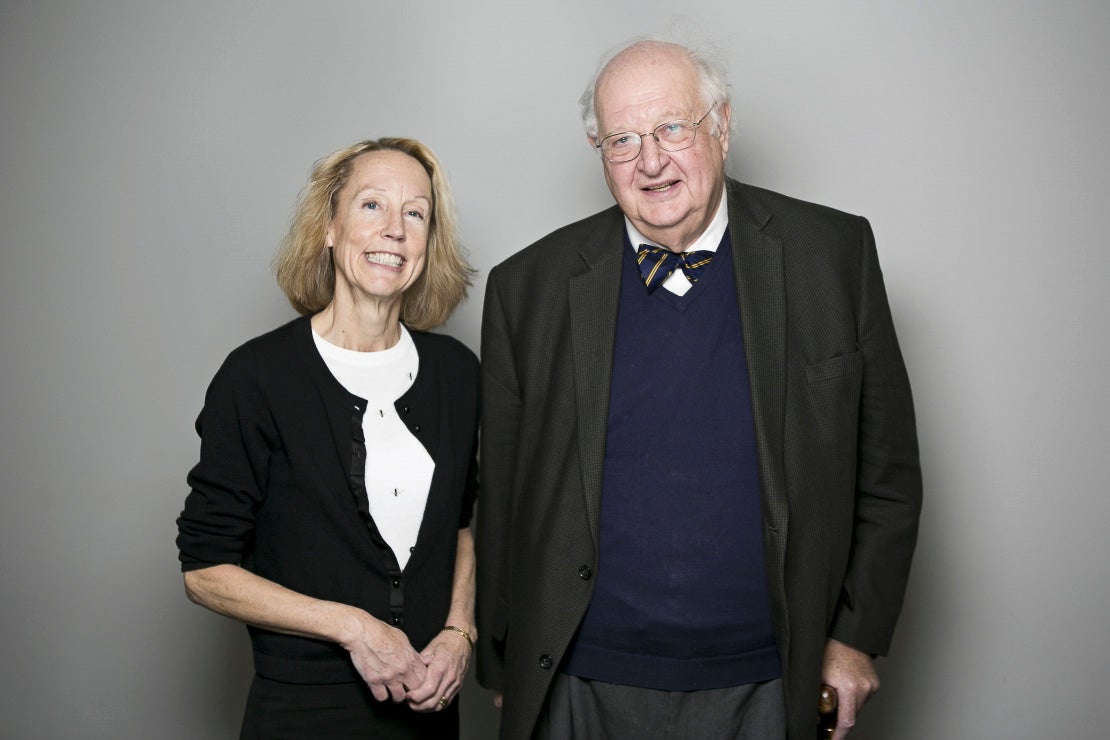Two economists to deliver 2019 Tanner Lectures at Stanford
This year’s Tanner Lectures on Human Values will feature Princeton University economists Anne Case and Nobel laureate Angus Deaton. The two will discuss the growing health epidemics caused by rising inequality in the United States.
Economists Anne Case and Angus Deaton will talk about rising inequality in the United States and the health epidemics it causes during the 2019 Tanner Lectures on Human Values on Wednesday, April 10, and Thursday, April 11.

Economists Anne Case and Angus Deaton of Princeton University, the husband-and-wife duo known for their finding that “deaths of despair” are rising for middle-aged, white working-class people in the United States, will deliver this year’s Tanner Lectures on Human Values. (Image credit: Courtesy Princeton University)
Case and Deaton are both emeriti at Princeton University. Case is the Alexander Stewart 1886 Professor of Economics and Public Affairs, Emeritus, and Deaton is the Dwight D. Eisenhower Professor of Economics and International Affairs, Emeritus.
The husband-and-wife duo are known for their 2015 finding that death rates are rising for middle-aged, white working-class people in the United States because of an uptick in “deaths of despair,” a term they coined to describe suicides, drug and alcohol overdoses, and chronic liver disease.
The purpose of the Tanner Lectures, which are free and open to the public, is to advance and reflect upon how scholarly and scientific learning relates to human values.
Case will give the first lecture, titled “Deaths of Despair,” at 5 p.m. Wednesday, April 10, at the Bechtel Conference Center in Encina Hall. She will discuss the data behind the trend of increasing deaths among uneducated white people in the U.S. and compare it with statistics from Hispanic, African American and European populations.
Case, who is also the director of Princeton’s Research Program in Development Studies, analyses people’s health over the course of their lives. Her work on the links between economic status and health status in childhood was honored with the Kenneth J. Arrow Award from the International Health Economics Association in 2003.
The second lecture, titled “Deaths of Despair and the Future of Capitalism,” will be delivered by Deaton at 5 p.m. Thursday, April 11, at the Bechtel Conference Center in Encina Hall. The focus of his talk is on the wider social and economic forces contributing to these deaths.
Deaton received the 2015 Nobel Memorial Prize in Economic Sciences for his analysis of consumption, poverty and welfare. He is also a senior scholar at Princeton’s Woodrow Wilson School of Public and International Affairs and the author of five books including, most recently, The Great Escape: Health, Wealth and the Origins of Inequality.
Lisa Berkman, director of the Harvard Center for Population and Development Studies, will comment in response to Case’s lecture. Victor Fuchs, the Henry J. Kaiser, Jr., Professor of Economics and of Health Research and Policy, Emeritus, at Stanford, will speak after Deaton’s lecture.
A discussion seminar is scheduled for 10 a.m. to noon, Friday, April 12, in the Wattis Room at Littlefield Center. The conversation will include Anna Lembke, associate professor of psychiatry and behavioral sciences at Stanford, and Daniel Wikler, professor of ethics and population health at the Harvard T.H. Chan School of Public Health.
The McCoy Family Center for Ethics in Society at Stanford collaborates with the Office of the President to host the Tanner Lectures at Stanford.
The Tanner Lectures, which are held at nine universities in the United States and England, were created by the late American scholar, industrialist and philanthropist Obert Clark Tanner. In creating the lectureship, Tanner said, “I hope these lectures will contribute to the intellectual and moral life of mankind. I see them simply as a search for a better understanding of human behavior and human values.”
